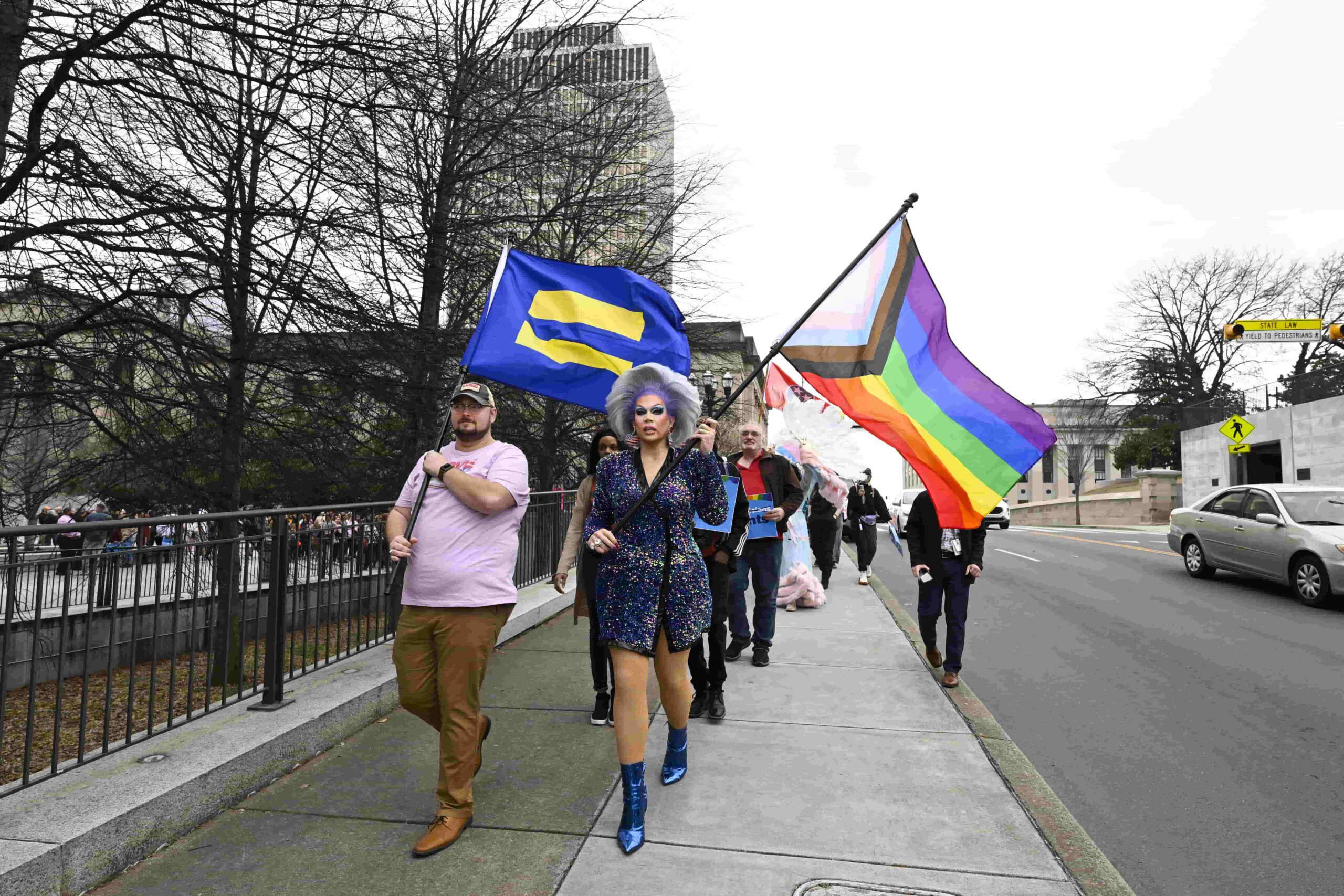The Tennessee legislature has passed a bill that could see drag performers and trans people charged with felonies—putting the state on track to be the first in the U.S. to enact a drag ban. If approved by the governor, it would go into effect April 1.
Known as House Bill 9, the bill will ban drag performances from taking place on public property, or any location where minors might be present in Tennessee. First offences are listed as Class A misdemeanours, with subsequent violations being felonies. Advocates have pointed out that the bill’s use of the phrase “male or female impersonators” means that the legislation could be potentially used to restrict trans people’s presence in public spaces, in addition to banning drag performers.
In order for the bill to become law, it still needs to be signed by Governor Bill Lee—who has noted that he will only make his decision once the bill arrives on his desk. Once it does, he will have 10 days to decide whether to reject it, or sign it into law. Lee has signed previous anti-trans legislation, and is expected to sign this bill as well.
Both the ACLU of Tennessee and the Human Rights Campaign (HRC) have condemned the bill, arguing that the proposed legislation is a violation of Tennesseans’ constitutional rights.
“Discriminating against drag performances based on the content of their expression is a direct contradiction of a fundamental principle of our democracy: our First Amendment right to express ourselves on and off the stage,” said ACLU Tennessee in a statement. “We have seen time and time again that when laws like this are put into effect, they lead to the hurtful and pointless arrest and criminalization of LGBTQ2S+ people—from giving police permission to raid bars to the arrest of trans women for simply existing in public.”
The bill is only the latest in a slew of anti-trans legislation hitting the tables of Tennessee’s legislators. At the same time as HB9 was passed, HB1 was also approved, prohibiting anyone from providing gender-affirming care to trans minors—even if the care is obtained out of state.
Advocates point out that these two pieces of legislation will make it exponentially harder for trans people, and trans youth in particular, to safely exist in the state. In addition to making it near impossible for young trans people to access gender-affirming care, it will also be incredibly difficult for youth to seek out trans community. Many queer people, including trans drag performer DeeDee Renner see the bills as a profound regression in the push for trans rights in the state.
“I would like to say that it was harder decades ago when I started transitioning, but unfortunately it has not gotten any easier because of the discrimination, disdain and the high rate of transgendered murders throughout the country,” she said. “This bill targeting drag entertainers will only add to the discrimination and hatred I have had to face my whole adult life.”
Drag performer Bella Duball highlighted how the technicalities of the bill put performers at risk, and effectively prevent queer people from gathering in spaces like gay bars.
“I could go to jail for 15 years for appearing outside in drag,” she said at a recent show. “They also seek to classify us as adult cabaret performers, so that means that we would have to get a stripping licence. If you have one of those, you cannot also have an alcohol licence. So our bar couldn’t even serve liquor anymore. This is an attempt to erase drag in Tennessee. This bill will further harm trans people who are literally just living their fucking lives.”
Tennessee is one of many states that has passed or attempted to pass anti-trans legislation in the past year. According to a tracker run by Alejandra Caraballo, an instructor at Harvard Law School’s Cyberlaw clinic, as many as 31 potential drag bans have been introduced in states across the country. And even though we’re barely two months into 2023, the HRC has already taken note of at least 340 anti-LGBTQ2S+ bills introduced across the country, with 150 of this year’s bills targeting trans people. This is the highest number of anti-trans bills recorded in a single year by the HRC.
Duball urged queer people and allies to prepare to fight the legislation in the name of saving trans lives and livelihoods.
“The original Pride was a riot,” she said. “If this year we need to remind them that we will fight for our liberation, we will raise our bricks high again and let them know that we will not go quietly.”


 Why you can trust Xtra
Why you can trust Xtra


